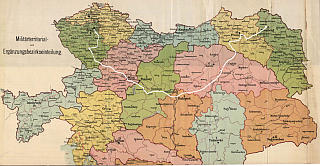
Švejk's journey on a of Austria-Hungary from 1914, showing the military districts of k.u.k. Heer. The entire plot of The Good Soldier Švejk is set on the territory of the former Dual Monarchy.
The Fateful Adventures of the Good Soldier Švejk (mostly known as The Good Soldier Švejk) by Jaroslav Hašek is a novel that contains a wealth of geographical references - either directly through the plot, in dialogues or in the author's narrative. Hašek was himself unusually well travelled and had a photographic memory of geographical (and other) details. It is evident that he put a lot of emphasis on geography: Eight of the 27 chapter headlines in the novel contain geographical names.
This web site will in due course contain a full overview of all the geographical references in the novel; from Prague in the introduction to Klimontów in the unfinished Part Four. Continents, states (also defunct), cities, market squares, city gates, regions, districts, towns, villages, mountains, mountain passes, oceans, lakes, rivers, caves, channels, islands, streets, parks and bridges are included.
The list is sorted according to the order in which the names appear in the novel. The chapter headlines are from Zenny Sadlon's recent translation (1999-2024) and will in most cases differ from Cecil Parrott's translation from 1973.
The quotes in Czech are copied from the on-line version of The Good Soldier Švejk: provided by Jaroslav Šerák and contain links to the relevant chapter. The toolbar has links for direct access to Wikipedia, Google maps, Google search, svejkmuseum.cz and the novel on-line.
The names are coloured according to their role in the novel, illustrated by these examples: Sanok a location where the plot takes place, Dubno mentioned in the narrative, Zagreb part of a dialogue, and Pakoměřice mentioned in an anecdote.
 Places index of countries, cities, villages, mountains, rivers, bridges ... (592)
Show all
Places index of countries, cities, villages, mountains, rivers, bridges ... (592)
Show all I. In the rear
I. In the rear  14. Švejk as military servant to senior lieutenant Lukáš (60)
14. Švejk as military servant to senior lieutenant Lukáš (60) II. At the front
II. At the front  2. Švejk's budějovická anabasis (64)
2. Švejk's budějovická anabasis (64) 3. Švejk's happenings in Királyhida (43)
3. Švejk's happenings in Királyhida (43) III. The famous thrashing
III. The famous thrashing  1. Across Magyaria (38)
1. Across Magyaria (38) 2. In Budapest (38)
2. In Budapest (38) 3. From Hatvan to the borders of Galicia (50)
3. From Hatvan to the borders of Galicia (50) 4. Forward March! (42)
4. Forward March! (42)



|
III. The famous thrashing |
 | |
2. In Budapest | |||
 | Budapest |  | ||||
| ||||||
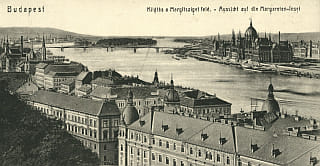
Budapest is mentioned 13 times in The Good Soldier Švejk.
Budapest is the scene of the whole of [III.2]. The action takes place on the outskirts of the city in Újpest and Isatarcsa, on and around a military station on the Pest side of the Danube. It is a story of constant delays of the departure, of food that is promised but never arrives, of Švejk's first conflict with the Leutnant Dub, of Švejk being accused of stealing a hen. At the end of the stay Einjährigfreiwilliger Marek re-enters the story as battalion chronicler. The principal historical reference is Italy's war declaration on Austria-Hungary on 23 May 1915. The march battalion stays in Budapest for two days.
Background
Budapest was in 1914 capital of the kingdom of Hungary, one of the two constituent parts of the Austria-Hungary. Emperor Franz Joseph I. was crowned king here in 1867 under the name I Ferenc Jószef. The city has since 1918 been capital of the republic of Hungary. Budapest has today around 1.7 million inhabitants and is by far the largest city in the country. It is situated on both sides of the Danube, with Buda as the old part on the west bank, and Pest as the administrative and political centre on the east bank.
Jaroslav Hašek passed the city with his XII. Marschbataillon around 1 July 1915. According to the poem Cestou na bojiště (The Road to the Battlefield) they arrived here in the morning, just like in the novel. It was surely the day after the departure from Királyhida, but they seem to have travelled onwards quickly: through Rakos, Aszód and Hatvan. It is also known that Hašek visited Budapest in the summer of 1903, on the way to Balkans.
Cestou na bojiští - Jaroslav Hašek (Večerní Česke Slovo, 1924)
Když nad Dunajem rozbřesklo se ráno, my k Pešti drkotali přes Komárno a v Pešti potom bez vši velké slávy, my napili se trochu černé kávy a že tak brzo nebude snad mír, my soudili už z toho, že nám k tomu dali ementálský sýr. Také jsme shledávali k svému bolu, že tam prodávali vše bez alkoholu.
Quote(s) from the novel
[II.2] Všichni měli naději, že válka musí za měsíc, dva skončit. Měli představu, že Rusové už jsou za Budapeští a na Moravě. Všeobecně se to v Putimi povídá.
[III.2] Matušič přinesl na vojenském nádraží v Budapešti hejtmanovi Ságnerovi z velitelství telegram, který poslal nešťastný velitel brigády dopravený do sanatoria. Byl téhož obsahu, nešifrován, jako na poslední stanici: „Rychle uvařit menáž a pochodem na Sokal.“ K tomu bylo připojeno: „Vozatajstvo začíslit u východní skupiny. Výzvědná služba se zrušuje. 13. pochodový prapor staví most přes řeku Bug. Bližší v novinách.“
Also written:Budapešťcz
 | Gödöllő |  | ||||
| ||||||
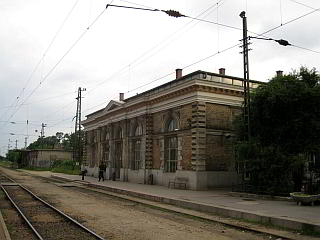

,3.6.1904
Gödöllő is mentioned by Hauptmann Ságner just after the train arrives in Budapest. The company was supposed to get 15 decagrams of Emmental cheese per soldier there. The company must have travelled past Gödöllő on the way to the front but there is not further mention of it.
Background
Gödöllő is a town north of Budapest which in the times of the Dual Monarchy was a summer residence of the Hungarian king (Emperor Franz Joseph I.). It was even more frequently visited by the queen (Sissi) and was a popular place amongst the upper layers of society.
Jaroslav Hašek and his 12th march battalion no doubt passed through on the way to the front, most likely on 1 July 1915 (they left Bruck the previous evening).
In a short story
Gödöllő is mentioned already in 1904 in one of Hašek's short stories and the author may well have visited the town already then. The neighbouring town of Hatavn is mentioned in the same story. Na svazích Hegyalye (Illustrovaný svět, 3 June 1914).
Quote(s) from the novel
[III.2] „Pane majore,“ otázal se hejtman Ságner velitele vojenského nádraží, „dle rozkazů pluku, dle maršrúty jedeme do Gödölö. Mužstvo má zde dostat 15 deka ementálského sýra. Na poslední zastávce mělo mužstvo dostat 15 deka uherského salámu. Ale nedostalo ničeho.“
Also written:GödölöHašek
Literature
- Na svazích Hegyalye, Jaroslav Hašek,3.6.1904
 | Beroun |  | |||
| |||||
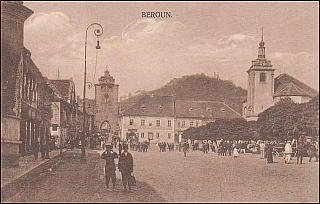
Beroun is mentioned together with Na Zderaze, Tábor, Příbram and Mladá Boleslav when Švejk reels off for Oberleutnant Lukáš the cases of liver paté poisonings he has read about.
Background
Beroun is an industrial town 30 km south-west of Prague, situated by the river Berounka.
Quote(s) from the novel
[III.2] Já jsem čet několikrát v novinách, že se celá rodina votrávila játrovou paštikou. Jednou na Zderaze,jednou v Berouně, jednou v Táboře, jednou v Mladé Boleslavi, jednou v Příbrami. Všichni tej votravě podlehli. Játrová paštika, to je nejhorší prevít...“
Also written:Beraunde
 | Mladá Boleslav |  | |||
| |||||
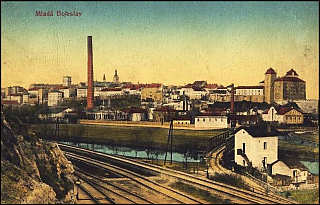
Mladá Boleslav is mentioned together with Na Zderaze, Tábor, Příbram and Beroun when Švejk reels off for Oberleutnant Lukáš the liver paté poisonings he has read about.
Background
Mladá Boleslav is a city in Central Bohemia, on the left bank of the Jizera river about 60 km northeast of Prague. It is known for the Škoda car factory.
Quote(s) from the novel
[III.2] Já jsem čet několikrát v novinách, že se celá rodina votrávila játrovou paštikou. Jednou na Zderaze,jednou v Berouně, jednou v Táboře, jednou v Mladé Boleslavi, jednou v Příbrami. Všichni tej votravě podlehli. Játrová paštika, to je nejhorší prevít...“
Also written:Jungbunzlaude
Literature
- Povídka o obrazu císaře Františka Josefa I., Jaroslav Hašek,17.7.1916J
 | Příbram |  | |||
| |||||
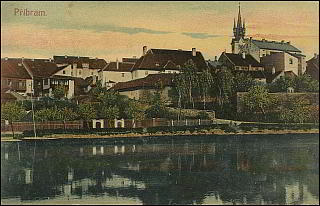
Příbram is mentioned together with Na Zderaze, Tábor, Mladá Boleslav and Beroun when Švejk reels off for Oberleutnant Lukáš the liver paté poisonings he has read about.
Background
Příbram is a city in the western part of Bohemia. It has around 35,500 inhabitants and is situated about 60 km south west of Prague.
Quote(s) from the novel
[III.2] Já jsem čet několikrát v novinách, že se celá rodina votrávila játrovou paštikou. Jednou na Zderaze, jednou v Berouně, jednou v Táboře, jednou v Mladé Boleslavi, jednou v Příbrami. Všichni tej votravě podlehli. Játrová paštika, to je nejhorší prevít...“
Also written:Pibransde
 | Canisiusgasse |  | |||
| |||||
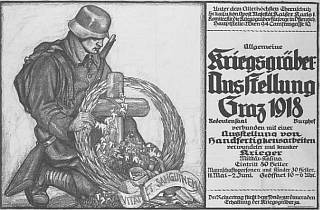
Canisiusgasse is referred to by the author as the street where the Commission for War Graves is located.
Background
Canisiusgasse is a street in Vienna. Komitee für die Kriegsgräber-fürsorge in Österreich was located in Canisiusgasse no. 10, not in number 4 as the author claims.
Quote(s) from the novel
[III.2] Místo patnácti dekagramů ementálského sýra, který měl zde být rozdán, dostal každý po škatulce zápalek a jednu pohlednici, kterou vydalo komité pro válečné hroby v Rakousku (Vídeň XIX/4, Canisiusgasse).
Literature
 | Siedliska |  | |||
| |||||

War cemetery number 152
Siedliska and the local war graves was depictied on the postcard from the War Grave Commission in Canisiusgasse.
Background
Siedliska is a village in Western Galicia, south of Tarnów. In November 1915 it was decided to build a memorial complex of war graves here. It currently consists of 378 cemeteries with a total of 60,000 graves. sculptor Scholz was project architect and technical supervisor for many of the war cemeteries. The memorial was often photographed, paintings were made and sculptures created.
Note that the author here surely has used printed material from the War Grave Commission as source. He has ignored the fact that this war grave complex by Siedliska did not yet exist when this episode in the novel took place (end of May 1915).
Quote(s) from the novel
[III.2] Místo patnácti dekagramů ementálského sýra měl každý v ruce západohaličský hřbitov vojínů v Sedlisku s pomníkem nešťastných landveráků, zhotovených ulejvákem-sochařem, jednoročním dobrovolníkem šikovatelem Scholzem.
Also written:SedliskoHašek
 | Vicenza |  | |||
| |||||
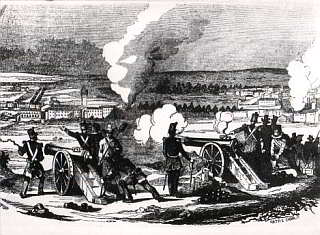
Vicenza is one of the battle grounds mentioned in the telegram from the brigade as the news of Italy's declaration of war breaks.
Background
Vicenza is a city in the Veneto province of Italy, situated between Verona and Venice. The battle referred to took place on 10 June 1848 during the First Italian War of Independence. The Austrian army was commanded by Marschall Radetzky.
Quote(s) from the novel
[III.2] V to důvěřujeme pevně, že s pomocí boží brzy nadejde den, kdy roviny italské opět uvidí vítěze od Santa Lucia, Vicenzy, Novary, Custozzy. Chceme zvítězit, musíme zvítězit, a jistě zvítězíme!
 | Novara |  | |||
| |||||

Novara is one of the battle grounds mentioned in the telegram from the brigade as the news of Italy's declaration of war breaks.
Background
Novara is a city in Piedmont, situated 50 km west of Milan. The battle referred to took place on 23 March 1849 during the First Italian war of independence. Other battles in this war (mentioned in Švejk) took place by Santa Lucia, Vicenza, and Custoza. The Austrian army was commanded by Marschall Radetzky and their victory led to Sardinia asking for peace.
Quote(s) from the novel
[III.2] V to důvěřujeme pevně, že s pomocí boží brzy nadejde den, kdy roviny italské opět uvidí vítěze od Santa Lucia, Vicenzy, Novary, Custozzy. Chceme zvítězit, musíme zvítězit, a jistě zvítězíme!
 | Venice |  | |||
| |||||
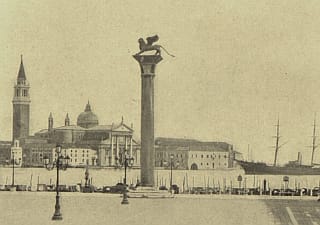
Světem letem, ,1896

,30.4.1911
Venice had been honoured by a visit from cook Jurajda who could inform his fellow soldiers that everything was "porco" in Italy, even the pope and Maria.
Background
Venice is a city in the north-eastern part of Italy which until 1797 was the capital of the Venetian Republic. After the Napoleonic wars it was ruled by Austria until it was ceded to Italy in 1866.
Turista Aratáš
Venice is also the theme in the story Turista Aratáš that Hašek had published in Venkov in 1911, on his 28th birthday[a]. In the story many of the city's buildings and landmarks are mentioned, amongst them Fondaco dei Turchi, Palazzo Pesaro, Palazzo Grimani, Palazzo Contarini delle Figure, Canal Grande, Ponte di Rialto, Palazzo Manin, Bacino Orseola.
Quote(s) from the novel
[III.2] „Cožpak Italie, to je pěkná země,“ prohodil kuchař Jurajda, „já sem byl jednou v Benátkách a vím, že Talián nazve každého prasetem. Když se rozčílí, je u něho každej porco maladetto. I papež je u něho porco, i ,madonna mia e porco’, ,papa e porco’.“
Also written:BenátkyczVenedigdeVeneziait
Literature
- Turista Aratáš, Jaroslav Hašek,30.4.1911 [a]
| a | Turista Aratáš | Jaroslav Hašek | 30.4.1911 |
 | Krameriova ulice |  | |||
| |||||
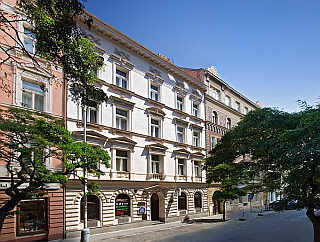
Krameriova ulice is mentioned in Švejk's urine analysis story. The pub where the story started was in this street.
Background
Krameriova ulice was the name of a street in Vinohrady, named after the author and publister Václav Kramerius. The current name of this street Americká in the lower part and Kopernikova in the upper.
Quote(s) from the novel
[III.2] „Vono se řekne,“ usmál se Švejk, „pomstít se. Někdo myslí, že se pomstí, a nakonec to vodnese ten, koho si jako takovej člověk vybral za nástroj svý pomsty. Když jsem bydlel před lety na Vinohradech, tak tam bydlel v přízemí domovník a u toho na bytě byl jeden takovej malej ouředníček z ňáký banky, a ten chodil do jednoho výčepu v Krameriově ulici a pohádal se tam jednou s jedním pánem, kerej měl takovej ňákej ústav na Vinohradech pro analysu moče.
 | Čelakovského ulice |  | |||
| |||||
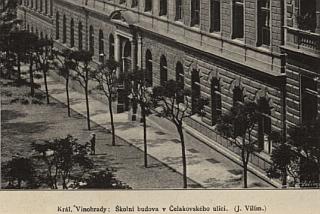
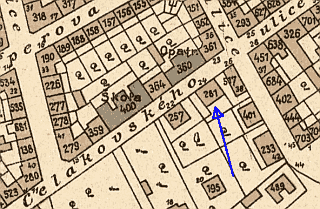
The Hašek family lived here from 1901 to 1906.

Police report, 20 June 1904
Čelakovského ulice is mentioned in Švejk's urine analysis story. The ill-tempered custodian Korporal Málek chases the urine-analysis man through this street and on down Havlíčkova třída, but in the end got arrested.
Background
Čelakovského ulice was the name of a current Ulice Jana Masaryka in Vinohrady. According to a police report that Břetislav Hůla discovered, Jaroslav Hašek lived in no. 29. The report is dated 20 June 1904. The official population register (konskripce) gives more information of the address of his mother: on 19 August 1901 she is registered with domicile Weinberge 281, i.e. Čelakovského No. 24. Jaroslav is noted on the same sheet, and this was their official address until 8 March 1906.
The theme of urine analysis is a re-use from the story Analysa moče (The Urine Analysis) that was printed in Kopřivy 4 July 1912. The story has much in common with the anecdote in the novel, but here the main character is some Mašek. The author fell out with him when they both worked as apprentices at drogerie Průša, located in the same area. In the story Hašek even provides the address Čelakovského 24. Thus the address from the police report is definitely wrong - the error may originate from the police themselves or it could have crept in during transcription.
Quote(s) from the novel
[III.2] Když ho vytáh z almary, popad bejkovec a už ho hnal dolů v kaťatech Čelakovskýho ulicí, a ten ječel, jako když šlápneš psovi na vocas, a na Havlíčkově třídě skočil do elektriky, a domovníka chyt strážník, sepral se s ním, a poněvadž byl domovník v kaťatech a všechno mu lezlo ven, tak ho kvůli takovýmu pohoršení hodili do košatinky a vodvezli na policii, a von ještě z košatinky řval jako tur: ,Vy pacholci, já vám ukážu mně analysovat moč.’
Credit: Hůla, Jaroslav Šerák
Literature
- Stehlíkův historický a orientační průvodce ulicemi hlavního města Prahy, ,1929
- Analysa moče, Jaroslav Hašek,4.7.1912
 | Habsburg |  | |||
| |||||
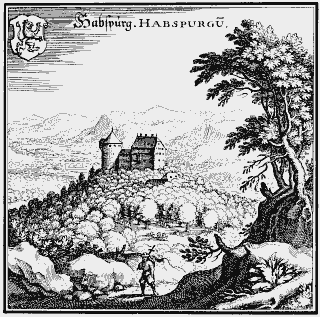
Habsburg has incredibly enough not been mentioned directly until now, but finally the name of the ruling house enters the story through the author's introduction of Leutnant Dub. The latter is a teacher of Czech in civilian life and is very loyal to the Imperial house. He frequently gave his pupils assignments on the Habsburgs.
Background
Habsburg was a place in the Aarau canton of Switzerland which gave its name to the royal house which were to rule large parts of Europe from the 15th century until 1918. At one time or another the Habsburgs ruled todays Austria, Bohemia, Moravia, Hungary, parts of the Balkans, Spain, Belgium, Netherlands, Switzerland, Italy, Poland, Ukraine and Germany.
Austria-Hungary was their last possession, World War I meant the final nail in the coffin as a royal house. Over the years they expanded their possessions both by warfare and royal alliances and marriages. Bohemia came under Habsburg rule in 1526 as the Czechs elected Ferdinand of Habsburg as their king. Hungary became part of the Habsburg dominions the same year.
Quote(s) from the novel
[III.2] „Je pravdou,“ pokračoval již mírnějším tónem, „že se ve většině případech i ve školních úlohách zapomínalo na náš bývalý poměr s Italií, na ony veliké dny slavných vítězných armád i v roce tisíc osm set čtyřicet osm, i v roce tisíc osm set šedesát šest, o kterých se mluví ve dnešních příkazech po brigádě. Já jsem však ale vykonal vždy svou povinnost a ještě před ukončením školního roku, takřka na samém začátku války, dal jsem svým žákům slohový úkol: ,Unsere Helden in Italien von Vicenza bis zur Custozza, oder...’“ A blbeček poručík Dub slavnostně dodal: „...Blut und Leben für Habsburg! Für ein Österreich, ganz, einig, groß!“...
Also written:HabsburkczHabsburgoesAsburgoit
 | Most císaře Františka Josefa I. |  | |||
| |||||
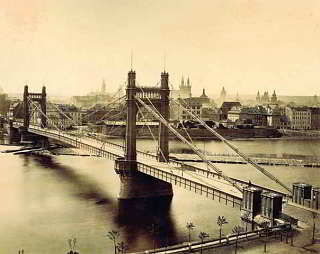
Most císaře Františka Josefa I. is mentioned in the description of Leutnant Dub, who had punished a pupil who had written in an assignment that the Emperors greatest achievement was to build this bridge in Prague. It has already been mentioned by Švejk who used the popular name Eliščin most.
Background
Most císaře Františka Josefa I. was the name of the bridge in Prague that was demolished in 1947. The current Štefánikův most was built on the same spot.
Quote(s) from the novel
[III.2] e vyšších třídách byla ta themata ovšem spletenější, jako kupříkladu úloha pro septimány: „Císař František Josef I., podporovatel věd a umění“, kteráž práce vynesla jednomu septimánovi vyloučení ze všech středních škol říše rakousko-uherské, poněvadž napsal, že nejkrásnějším činem tohoto mocnáře bylo založení mostu císaře Františka Josefa I. v Praze.
 | Tripoli |  | |||
| |||||
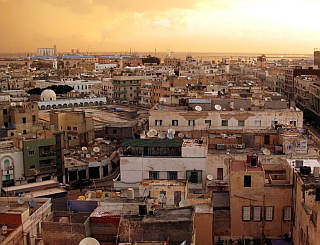
Tripoli is mentioned by Leutnant Dub when he pontificates to the officers about the background for Italy declaring war on its formal ally Austria-Hungary. He also touches on the war between Turkey and Italy about Tripoli.
Background
Tripoli is a city in North Africa, now the capital of Libya. It was under Ottoman rule until 1912. Italian supremacy was established that year after a year of armed conflict.
Quote(s) from the novel
[III.2] „Celkem vzato mě naprosto nepřekvapilo vystoupení Italie. Čekal jsem to již před třemi měsíci. Je jisté, že Italie značně zpyšněla poslední dobou následkem vítězné války s Tureckem o Tripolis. Kromě toho příliš spoléhá se na své loďstvo i na náladu obyvatelstva v našich přímořských zemích a v jižním Tyrolsku.
Also written:TripolisczTripolisde
 | South Tyrol |  | |||
| |||||
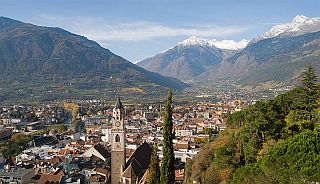
Merano (Meran), now in Italy.
South Tyrol is mentioned by Leutnant Dub when he pontificated to the officers about the background for Italy declaring war on Austria-Hungary.
Background
South Tyrol was part of Austria until 1919 when it was annexed by Italy. The province still has a German speaking majority.
Milititarily the area was very important for Austria-Hungary because Italy made claims to it. The enormous system of fortresses aropund Trento was the pivot of the defence but garrisons existed also elsewhere. Prague's Infanterieregiment Nr. 28 was at times garrison here, and several om Hašek's friends served with the regiment in this location.
Quote(s) from the novel
[III.2] „Celkem vzato mě naprosto nepřekvapilo vystoupení Italie. Čekal jsem to již před třemi měsíci. Je jisté, že Italie značně zpyšněla poslední dobou následkem vítězné války s Tureckem o Tripolis. Kromě toho příliš spoléhá se na své loďstvo i na náladu obyvatelstva v našich přímořských zemích a v jižním Tyrolsku.
Also written:Jižní TyrolskoczSüd-TiroldeAlto AgideitSør-Tirolnn
 | Szatmár |  | |||
| |||||
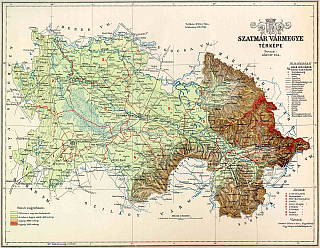
Szatmár is mentioned through archbishop Archbishop Géza ze Szatmár-Budafalu.
Background
Szatmár is a historical Hungarian county. After the Treaty of Trianon most of the area was ceded to Romania, including the city the county is named after, contemporary Satu Mare.
Quote(s) from the novel
[III.2] Kromě toho přinesly ustarané, utahané dámy veliký balík vytištěných dvou modliteb sepsaných budapešťským arcibiskupem Gézou ze Szatmár-Budafalu. Byly německo-maďarské a obsahovaly nejstrašnější prokletí všech nepřátel. Psány byly tyto modlitbičky tak vášnivě, že tam jenom na konci scházelo řízné maďarské „Baszom a Krisztusmárját!“
Also written:Satu Marero
 | Budafalu |  | |||
| |||||
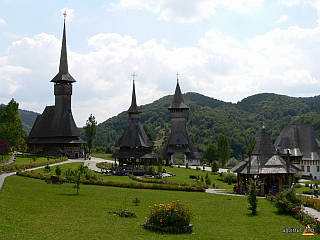
Budafalu is mentioned through archbishop Archbishop Géza ze Szatmár-Budafalu.
Background
Budafalu is a Hungarian name of the village Budeşti in Maramureş County in north-western Romania. It was also referred to as Budfalu or Budfalva. Budfalu is the name used on the Austro-Hungarian Miltary Survey map from 1910.
Budfalu is also mentioned in one of Hašek's short stories and the additional information he provides leaves no doubt that this is the place in question[a]. The author has probably visited on one of his many wanderings. The area was ceded to Romania in 1921.
Quote(s) from the novel
[III.2] Kromě toho přinesly ustarané, utahané dámy veliký balík vytištěných dvou modliteb sepsaných budapešťským arcibiskupem Gézou ze Szatmár-Budafalu. Byly německo-maďarské a obsahovaly nejstrašnější prokletí všech nepřátel. Psány byly tyto modlitbičky tak vášnivě, že tam jenom na konci scházelo řízné maďarské „Baszom a Krisztusmárját!“
Also written:WynzdorfdeBudfalva/BudfaluhuBudeştiro
Literature
- Babámovy archeologické snahy, ,1920 [a]
| a | Babámovy archeologické snahy | 1920 |
 | Újpest |  | ||||
| ||||||
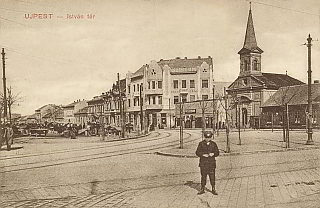
Újpest is mentioned when the author tells how a group of Bosnians have been stranded for a few days and having to beg for food in Újpest. The military railway station where the plot takes place may have been nearby Rákosrendező.
Background
Újpest is a suburb of Budapest, the name means "New Pest". It is situated north of the centre, on the east bank of the Danube. In 1915 it was still a separate town.
Quote(s) from the novel
[III.2] Bosňáci již dva dni nefasovali mináž a chodili žebrat chleba po Nové Pešti. Také nebylo nic jiného slyšet nežli rozčilený hovor ztracených Bosňáků, živě gestikulujících, kteří vyráželi neustále ze sebe: „Jeben ti boga - jeben ti dušu, jeben ti majku.“
Also written:Nové PeštczNeu-Pestde
 | Prešov |  | |||
| |||||
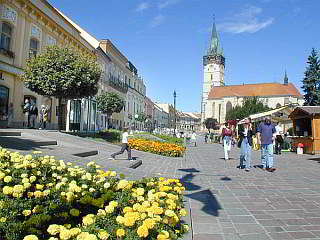
Prešov is mentioned by Rechnungsfeldwebel Bautanzel when he relates about his experiences at the front in the Carpathians.
Background
Prešov is a city in the Šariš region in eastern Slovakia, then ruled from Hungary. Today, it is with 100,000 inhabitants, the third largest city in the country.
Quote(s) from the novel
[III.2] Panečku, než jsme přijeli tenkrát do Prešova, tak jsme měli haldy všeho, na co si člověk pomyslil. Měl jsem schováno deset tisíc memfisek, dvě kola ementálského sýra, tři sta konserv, a potom, když už se šlo na Bardějov do zákopů, Rusové od Mušiny odřízli spojení na Prešov, potom se dělaly obchůdky.
Also written:EperiesdeEperjeshu
 | Bardejov |  | |||
| |||||
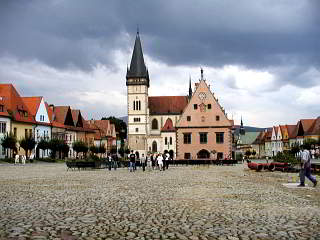
Bardejov is mentioned by Rechnungsfeldwebel Bautanzel when he relates about his experiences at the front in the Carpathians.
Background
Bardejov is a city in eastern Slovakia, nort of Prešov, near the Polish border. The city is on the UNESCO World Heritage list.
Quote(s) from the novel
[III.2] Panečku, než jsme přijeli tenkrát do Prešova, tak jsme měli haldy všeho, na co si člověk pomyslil. Měl jsem schováno deset tisíc memfisek, dvě kola ementálského sýra, tři sta konserv, a potom, když už se šlo na Bardějov do zákopů, Rusové od Mušiny odřízli spojení na Prešov, potom se dělaly obchůdky.
Also written:BardějovHašekBartfelddeBartfahu
 | Muszyna |  | |||
| |||||
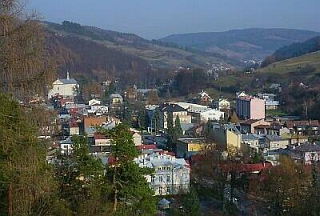
Muszyna is mentioned by Rechnungsfeldwebel Bautanzel when he relates about his experiences at the front in the Carpathians. The Russians came from here to cut the connection between Prešov and Bardejov.
Background
Muszyna is a small town in the Carpathians, situated in Poland just west of Bardejov. The town was strategically important because of the railway line across the mointains.
Quote(s) from the novel
[III.2] Panečku, než jsme přijeli tenkrát do Prešova, tak jsme měli haldy všeho, na co si člověk pomyslil. Měl jsem schováno deset tisíc memfisek, dvě kola ementálského sýra, tři sta konserv, a potom, když už se šlo na Bardějov do zákopů, Rusové od Mušiny odřízli spojení na Prešov, potom se dělaly obchůdky.
Also written:MušinaHašek
 | Podolínec |  | |||
| |||||

Podolínec is mentioned by Rechnungsfeldwebel Bautanzel when he relates about his experiences at the front in the Carpathians. The Russians had reached it and were now threatening Bardejov from the west.
Background
Podolínec is a town in Slovakia, on the southern side of the Carpathians near the border with Poland.
Quote(s) from the novel
[III.2] Za tu celou dobu, co jsme stáli pod Bardějovem, jsem si při nákupu dobytka neušetřil víc než něco málo přes dvanáct set korun, a to jsme ještě většinou namísto peněz dávali poukázky se štemplem batalionu, zejména poslední dobou, když jsme věděli, že Rusové na východ od nás jsou v Radvani a na západ v Podolíně.
Also written:PodolínHašekPudleindePodolinhuPodoliniecpl
 | Hatvan |  | ||||
| ||||||
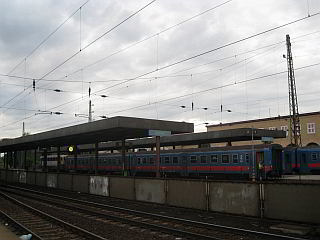

Illustrovaný svět, 3.6.1904
Hatvan is mentioned as the railway line there was blocked by a train of wounded. This delayed the departure from Budapest with 4 hours. The battalion is promised bread there because the previous transport didn't get anything. The company must have travelled past Hatvan on the way to the front but there is not further mention of it. Hatvan also appears in the header of [III.3].
Background
Hatvan is a town and railway junction north-east of Budapest, on the line to Miskolc.
Jaroslav Hašek and his XII. Marschbataillon no doubt passed through on the way to the front, most likely on 1 July 1915 (they left Bruck the previous evening).
Hatvan is mentioned already in 1904 in one of Hašek's short stories and the author may well have visited the town already then. The neighbouring town of Gödöllő is mentioned in the same story[a].
Quote(s) from the novel
[III.2] Potom přišla zpráva, že se pojede ještě až za čtyři hodiny. Trať nahoře na Hatvan že je zastavena vlaky s raněnými. Také se rozšiřovalo po nádraží, že u Jágru srazil se jeden sanitní vlak s nemocnými a raněnými s vlakem vezoucím dělostřelectvo. Z Pešti že tam jedou pomocné vlaky.
Literature
- Na svazích Hegyalye, Jaroslav Hašek,3.6.1904 [a]
| a | Na svazích Hegyalye | Jaroslav Hašek | 3.6.1904 |
 | Subotiště |  | |||
| |||||
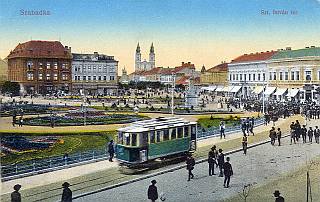
Szabadka in 1914.
Subotiště is mentioned by the latrine general in Budapest when he tells the officers about the logistical mess when delivering gulash and potatoes in Bosnia.
Background
Subotiště can not be identified with certainty as there is no railway station carrying this name in southern Bosnia. The general is therefore probably talking about "the station Subotica on the South Hungarian Railway". This city is an important railway hub on the line between Budapest and Belgrade, and many troop transport trains passed through it early in the war. Since 1920 the city has been part of Serbia, but the majority of the population are still etthnic Hungarians.
Quote(s) from the novel
[III.2] Při revisi stanice Subotiště na jižní dráze bosenské zjistil jsem, že šest ešalonů nedostalo večeři, poněvadž o ni zapomněli velitelé ešalonů žádat. Šestkrát se na stanici vařil guláš s brambory, a nikdo o něj nežádal.
Also written:SubotištěHašekSabatkaReinerMaria-TheresiopeldeSzabadkahuСуботицаsr
 | Watian |  | |||
| |||||

Břetislav Hůlas's fanciful hypothesis
© LA-PNP
Watian is mentioned at the station in Budapest when the "latrine-general" goes to the station command to investigate why the soldiers have not been given goulash. The answer is that the march battalion at least will be given bread at the station in Watian.
Background
Watian is not the name of any Hungarian town and has by near certainty appeared as the result of an error during dictating, transcription or typesetting. It seems inconceivable that Hašek (who knew some Hungarian) would use a name that sounds anything but Hungarian. To judge by the topographical context of this part of the novel it is surely Hatvan that is meant, an assumption shared by the Hungarian translation of The Good Soldier Švejk.
To make the matter entirely obvious: a few paragraphs further down the "latrine general" says that two days ago the soldiers of a military transport that rolled through Hatvan didn't get bread "but you will get it issued there".
Still, there has been at least one attempt to locate "Watian". Břetislav Hůla claimed that it was a station between Győr and Budapest but such a place didn't exist nor does it fit with the plot. Waitzen, the German name for the town of Vác in northern Hungary, is possible in a pure syntactical sense but again it doesn't fit the itinerary of Švejk's march battalion.
Quote(s) from the novel
[III.2] Pokud se týká chleba, obdrží mužstvo ve Watianě na stanici po půl vece.
 | Rákospalota |  | |||
| |||||
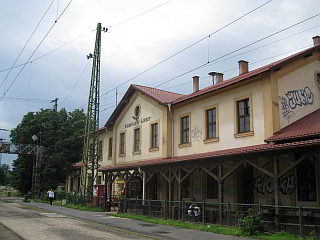
Rákospalota is mentioned as Švejk knew the way all the way from the station to there.
Background
Rákospalota is a district of Budapest, situated east of Újpest.
Quote(s) from the novel
[III.2] „Poslušně hlásím, pane obrlajtnant, že už se vypravil,“ rozjasněně hlásil Baloun. „Řekl, že pan obrlajtnant bude spokojen a že panu obrlajtnantovi budou všichni závidět. Šel někam z nádraží a říkal, že to tady zná až za Rákošpalotu. Kdyby snad vlak bez něho odjel, že se přidá k automobilové koloně a dohoní nás na nejbližší stanici automobilem.
Also written:RákošpalotaHašek
 | Aszód |  | ||||
| ||||||
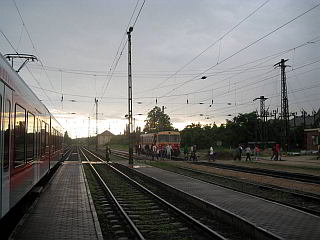
Aszód is mentioned when it, after another delay, is announced that the battalion is moving on to Gödöllő-Aszód at two o´clock in the afternoon. The company must have travelled past Aszód on the way to the front but there is not further mention of it.
Background
Aszód is a town nort-east of Budapest, on the railway line between Gödöllő and Hatvan.
Quote(s) from the novel
[III.2] Přinesli zprávu z kanceláře velitelství, že se pojede až odpůldne ve dvě hodiny na Gödöllö-Aszód a že se fasuje pro důstojníky na nádražích po dvou litrech červeného vína a láhev koňaku. Říkalo se, že je to nějaká ztracená zásilka pro Červený kříž.
 | Gumpoldskirchen |  | |||
| |||||
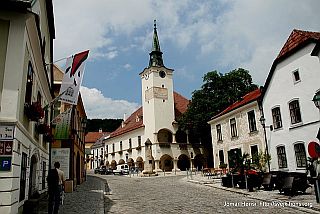
Gumpoldskirchen is mentioned as there appears a shipment of cognac and Gumpoldskirchen wine. The shipment was for the Red Cross but had got lost, but now benefited the officers, particularly hejtman Hauptmann Ságner.
Background
Gumpoldskirchen is a wine-producing town in the district of Mödling in Lower Austria, south of Vienna.
Quote(s) from the novel
[III.2] Říkalo se, že je to nějaká ztracená zásilka pro Červený kříž. Ať se to mělo jak chce, spadlo to přímo s nebe a ve štábním vagoně bylo veselo. Koňak měl tři hvězdičky a víno bylo známky Gumpoldskirchen.
 | Isatarcsa |  | ||||
| ||||||
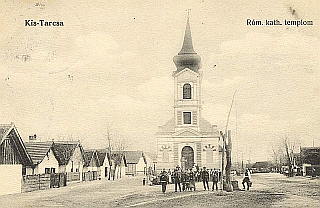
Isatarcsa is the scene of Švejk's alleged hen-theft. This, as many of our hero's little accidents, happens when he wants to please his obrlajtnant. He is arrested by some Honvéd soldiers and led back to the railway station, giving Oberleutnant Lukáš another headache. Švejk describes the village as consisting of thirteen streets.
At the end of the chapter, the train disappears behind Isatarcsa as Feldwebel Nasáklo is left at the station (in Budapest) haggling with a prostitute.
Background
Isatarcsa with near certainty refers to Kistarcsa, a small town outside Budapest. This goes well with the description of the rest of the stay in Budapest. The Hungarian translator makes the same assumption and has "corrected" the text accordingly. A map from 1910 confirms that there was a railway line and a station here[a] and it is very likely that the transport with Hašek's XII. Marschbataillon passed through on 1 July 1915.
Quote(s) from the novel
[III.2] Nezbývalo již nic jiného než koupit slepici. Šel jsem tedy za nádražím do Išatarči. Je to vlastně vesnice, jako by to nebylo žádný město, ačkoliv je tam napsáno v první ulici Išatarča vároš. Projdu jednu ulici se zahrádkami, druhou, třetí, čtvrtou, pátou, šestou, sedmou, osmou, devátou, desátou, jedenáctou, až v třinácté ulici na samém konci, kde za jedním domkem už začínaly trávníky, páslo se a procházelo stádo slepic.
Also written:IšatarčaHašek
Literature
| a | Magyarország általános térképe (foktérkép) 1910 körül (1:200 000) |
 | Transylvania |  | |||
| |||||
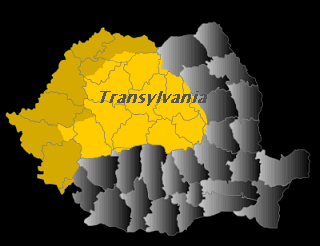
Transylvania is mentioned by Švejk; from the hen there will be made such good chicken soup that it can be smelt all the way to Transylvania.
Background
Transylvania is an area of Romania that until 1920 belonged to Hungary. It was at the time ethnically more mixed than today; large groups spoke Hungarian and German. The area covers most Romania west of the Carpathians.
Quote(s) from the novel
[III.2] Tak vidíte, pane obrlajtnant, že se dá všechno urovnat,“ řekl Švejk k nadporučíkovi Lukášovi, „nejlepší je, když se všechno obejde bez skandálu, bez velkých ceremonií. Nyní s Balounem vám uvaříme takovou slepičí polévku, že ji bude cítit až do Sedmihradska.“
Also written:SedmihradskoczSiebenbürgendeErdélyhuTransilvaniaro
 | Philippi |  | |||
| |||||
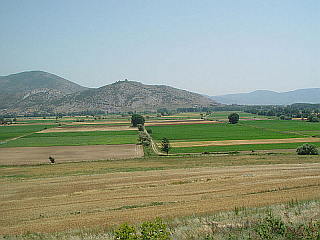
Philippi is invoked by Leutnant Dub as threat against Švejk: "At Philippi we will meet". Švejk interprets this as a place where homosexuals meet and has thus classed Dub as such.
Background
Philippi was a city of ancient Greece. The quote Leutnant Dub uses may be from "Julius Caesar" by William Shakespeare, alluding to Caesar's killer, Brutus, who was amongst the loosers at the battle of Philippi in 42 BC.
Plutarch famously reported that Brutus experienced a vision of a ghost a few months before the battle. One night he saw a huge and shadowy form appearing in front of him; when he calmly asked, "What and whence art thou?" it answered "Thy evil spirit, Brutus: I shall see thee at Philippi." He again met the ghost the night before the battle.
Quote(s) from the novel
[III.2] „Pro nás, poslušně hlásím, pane lajtnant. Podívejte se, co má sádla.“ Poručík Dub odcházel bruče: „U Filippi se sejdeme.“ „Cože ti říkal?“ obrátil se k Švejkovi Jurajda. „Ale dali jsme si schůzku někde u Filipy. Voni tihle vznešení páni bejvají obyčejně buseranti.“
Credit: Wikipedia
Also written:Filippicz
 | Praha II. |  | |||
| |||||
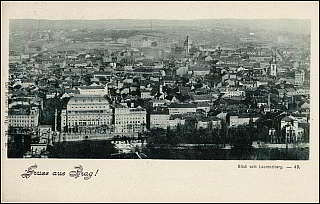
Praha II. is mentioned in Švejk's story about two abandoned sluts who raped a 100-year old man by Roztoky.
A great number of the places mentioned in the novel are located within the district, amongst them U kalicha. The plot of the first seven chapters of the book almost exclusively takes place here.
Background
Praha II. is an administrative district of Prague which includes all of Vyšehrad and parts of Vinohrady, Nové město and Nusle.
Until 1922 Prague II. was much smaller than today, and was identical to Nové město. It was in this district Jaroslav Hašek was born, grew up, went to school and completed his higher education. As an adult he lived here in long periods until the end of 1914.
Demography
According to the 1910 census Prague II. had 81,760 inhabitants of whom 71,761 (87 per cent) reported using Czech in their daily speech.
Source:Seznam míst v království Českém(1913)
Quote(s) from the novel
[III.2] “Vona je to holt vášeň, ale nejhorší je to, když to přijde na ženský. V Praze II byly před léty dvě vopuštěný paničky, rozvedený, poněvadž to byly coury, nějaká Mourková a Šousková, a ty jednou, když kvetly třešně v aleji u Roztok, chytly tam večer starýho impotentního stoletýho flašinetáře a vodtáhly si ho do roztockýho háje a tam ho znásilnily. Co ty s ním dělaly!
Also written:Praha IIczPrag IIdePraha IInn
Literature
 | Roztoky |  | |||
| |||||
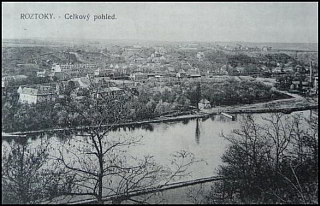
Roztoky er is mentioned in Švejk's story about two abondoned sluts Mourková and Šousková who raped a 100-year old here.
Background
Roztoky is a small town by the Vltava just north of Prague.
Quote(s) from the novel
[III.2] “Vona je to holt vášeň, ale nejhorší je to, když to přijde na ženský. V Praze II byly před léty dvě vopuštěný paničky, rozvedený, poněvadž to byly coury, nějaká Mourková a Šousková, a ty jednou, když kvetly třešně v aleji u Roztok, chytly tam večer starýho impotentního stoletýho flašinetáře a vodtáhly si ho do roztockýho háje a tam ho znásilnily. Co ty s ním dělaly!
 | Pečky |  | |||
| |||||
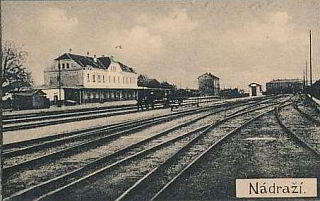
Pečky station in 1924
Pečky is essential in the anecdote Švejk tells in Budapest about train number 4268 which was left standing at track 16 here. This long story completely crushed the brutal Feldwebel Nasáklo.
Background
Pečky is a minor town in the Kolín district east of Prague. It is situated on the railway line between Praha and Brno. The town has a railway station but it is questionable if it had 16 tracks as it is a very small town and it is not a railway junction.
Quote(s) from the novel
[III.2] Švejk si mezitím prohlížel číslo na ručnici a ozval se: „4268! Takový číslo měla jedna lokomotiva v Pečkách na dráze na šestnácté koleji. Měli ji odtáhnout do depot v Lysý nad Labem, ku správě, ale vono to tak lehce nešlo, poněvadž, pane šikovateli, ten strojvůdce, který ji tam měl odtáhnout, měl velmi špatnou paměť na čísla.
Literature
 | Lysá nad Labem |  | |||
| |||||
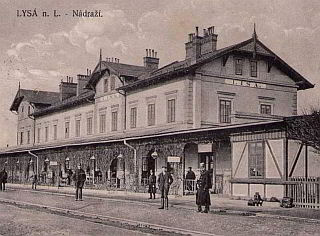
Lysá nad Labem is part of Švejk's anecdote about train number 4268 which was going to the depot her. See Pečky.
Background
Lysá nad Labem is a town by the Labe (Elbe) north-east of Prague.
Quote(s) from the novel
[III.2] Švejk si mezitím prohlížel číslo na ručnici a ozval se: „4268! Takový číslo měla jedna lokomotiva v Pečkách na dráze na šestnácté koleji. Měli ji odtáhnout do depot v Lysý nad Labem, ku správě, ale vono to tak lehce nešlo, poněvadž, pane šikovateli, ten strojvůdce, který ji tam měl odtáhnout, měl velmi špatnou paměť na čísla.
 | Klokoty |  | |||
| |||||
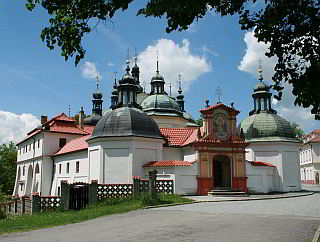
Klokoty is mentioned by Offiziersdiener Baloun who went there on a pilgrimage trip to beg the Lord to relieve him from his voracity.
Background
Klokoty is a pilgrimage site a short walk west of Tábor. Klokoty is now part of the city district.
Quote(s) from the novel
[III.2] Baloun zaúpěl, že už ztratil důvěru v pána boha, poněvadž už kolikrát se modlil, aby mu dal tolik síly a nějak mu ten jeho žaludek sescvrknul. „To se nedatuje vod týhle vojny,“ zabědoval, „to už je stará nemoc, tahle moje žravost. Kvůli ní chodila žena s dětma na pouť do Klokot.“ „To znám,“ poznamenal Švejk, „to je u Tábora a mají tam bohatou panenku Marii s falešnejma briliantama, a chtěl ji vokrást jeden kostelník vodněkud ze Slovenska. Moc nábožnej člověk.
 | Madrid |  | |||
| |||||

Plaza Mayor.
Madrid is mentioned by Einjährigfreiwilliger Marek when refererring to the commander of the Madrid fortress who ate his servant during the Napoleonic wars. This story has similarities with information the author gave in Part One, see Fernando and Toledo.
Background
Madrid is the capital av Spain and the country's largest city with 3.2 million inhabitants. It is the third largest city in the EU. Madrid was from 1808 to 1813 occupied by French troops and Napoléon's brother, Joseph was installed as king. The Madrid uprising on May 2 1808 is the best known event from this period, and the date is a national holiday.
The information given in the novel is dubious. Madrid did not experience any long siege during the Napoleonic Wars, nor did Toledo. The most likely historical event referred to is one of the two sieges of Zaragoza.
Quote(s) from the novel
[III.2] „My vás proto neodsuzujeme,“ řekl jednoroční dobrovolník, „naopak je vidět, že z vás bude dobrý voják. Když Francouzi za napoleonských válek obléhali Madrid, tu španělský velitel Madridu, než by vydal pevnost z hladu, snědl svého adjutanta bez soli.“



|
III. The famous thrashing |
 | |
2. In Budapest | |||
| © 2008 - 2024 Jomar Hønsi | Last updated: 20.11.2024 |


